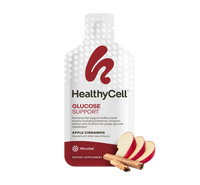Have you ever felt like your brain wasn't working as well as it normally does? As if, all of a sudden, you were unable to focus and new information was impossible to process? Maybe you forgot where you put your keys or you just couldn't get your work done. These events are the result of cognitive dysfunction, an extremely common issue that affects over 600 million people around the world [1]. Cognitive dysfunction goes by many names, most people know it simply as "brain fog."
Many people would struggle to answer this question, "What does brain fog feel like?" It’s difficult to describe because it is a subjective experience. For most people, the brain seems to become foggy and thoughts become lost. Others experience it as a dream-like state, where life feels like a simulation. Brain fog symptoms also include difficulty focusing, a loss of awareness, and generally feeling slow. Some people may even experience memory loss or find themselves less able to retain new information.
Cognitive issues are frustrating because performing even simple tasks becomes a challenge. Understanding what causes brain fog and what steps you can take to improve your brain fog symptoms can dramatically improve your quality of life.
Brain Fog Causes
- Stress
- Sleep issues
- Dehydration
- Diet
- Depression and anxiety
- Diabetes
- Medications
- Allergies
Stress
Most people know how bad stress is for you, but as time goes on, it becomes more and more clear just how truly dangerous stress can be. Among its laundry list of potential effects are several issues that impact cognitive function and lead to brain fog. Even rare, singular peaks in stress levels appear to impair the formation of memories and general reasoning abilities [2]. Long-term stress can result in the loss of neurons, which could progress to conditions like Alzheimer's or Parkison's disease.
Sleep issues
Sleep is necessary for many memory-related tasks, which allows us to integrate the large amounts of information we receive every day into our long-term memory. Over the past several years, researchers have found that sleep issues are some of the most common reasons for cognitive dysfunction. Sleep deprivation, in particular, is a major source of brain fog, among other serious problems [3].
We all know how tired and lost we feel after a night without sleep, but the effects of chronic sleep issues can be even worse. After 14 days of only a few hours of sleep each night, one study's participants showed the same cognitive decline as people who had gone without any sleep for 24 to 48 hours.[4]
When a person doesn't sleep, various processes interact to build up the force that drives you to feel tired and desire sleep. This force, sleep pressure, is responsible for many of the cognitive issues stemming from sleep deprivation. Luckily, Healthycell offers a REM Sleep supplement that helps you fall asleep quickly and more importantly, stay asleep.
Dehydration
You may have noticed that you start to lose focus after a long day of work or shortly after exercising. This isn't due to just physical fatigue. If you don't drink water throughout the day, you can become dangerously dehydrated. Even mild dehydration can have dramatic effects since every single system in the human body requires proper hydration, including your cognitive functions [5].
Research shows that being dehydrated by just 2% can impact cognitive performance in tasks requiring attention, immediate memory, and psychomotor skills by as much as 20% [6]. This is the level when people first start to feel run-down or "foggy." Certain demographics are more prone to dehydration, including older adults, children, pregnant women and athletes. However, because the effects are so clear after such a minor level of dehydration, everybody is at risk.
Water requirements can vary drastically from person to person, depending on factors like age, activity level, and climate. Generally, you should drink about eight glasses of water every day. Additionally, if you wait until you're thirsty to hydrate, you may already be dehydrated. Drink regularly throughout the day to maintain proper fluid levels.
Diet
In recent years, a greater number of studies have linked diet and gut health to a variety of health issues, including brain fog. Your diet could be one of the largest factors in reducing your risk of cognitive dysfunction. A lack of certain nutrients is one potential dietary trigger for brain fog, though eating specific inflammation-causing foods can also be responsible. Fatty fish like salmon, tuna, trout and more are some of the most considerable brain foods for optimal brain focus. These fish are packed with omega-3 fatty acids which help build brain and nerve cells, helping to improve memory and learning. Blueberries are another excellent food for brain health, as they contain antioxidants that help improve communication between brain cells [7]. It’s important to also note some of the top foods that cause inflammation and should be avoided for optimal cognitive performance include refined sugars, refined breads and pastas and red meat.
Vitamins
Many different vitamins promote cognitive functions and may be able to prevent brain fog. On the other hand, a deficiency of any of these nutrients could induce episodes of brain fog [8]. Some of the most integral vitamins for brain fog prevention are vitamins B6, B12, and vitamin D. Specifically, vitamin B6 helps convert food into energy. Vitamin B12 (along with omega fatty acids) provides the fuel your brain needs to avoid mental fatigue. Lastly, vitamin D deficiency is now linked to cognitive impairment which can result in more serious illness like dementia [9].
Though these nutrients have vastly different functions, each contributes to keeping your brain healthy. It can be difficult to ensure you're maintaining the proper levels of these vitamins, but taking an effective nutritional supplement or multivitamin makes it simple.
Saturated Fats and Simple Carbs
Regular consumption of saturated fats and simple carbohydrates has direct links to cognitive dysfunction and serious conditions like Alzheimer's Disease [10]. While the mechanisms are still largely a mystery, research indicates the existence of a vicious cycle involving these foods and brain fog. Saturated fats and simple carbs impact brain function, which impairs memory, and memory inhibition then encourages snacking behavior and poor eating habits.
Keto Brain Fog
In an effort to become healthier, many people have tried eating Keto and similar low-carb diets. Supporters of these diets will often talk about feeling healthier and mention that their minds feel sharper. While this is the case for many people, some individuals experience extreme brain fog and several other symptoms as part of a phenomenon called the keto flu [11]. There are a variety of reasons why keto flu leads to brain fog, including a reaction from carbohydrate withdrawal, an immunologic reaction, a lack of glucose, or a change in the gut microbiome.
Depression and anxiety
Brain fog has some deep and truly complex connections to conditions like depression and anxiety. It's also an extremely common symptom, affecting a majority of those who have depression and anxiety. Without treatment, cognitive dysfunction can further worsen a person's symptoms and mood. Some studies found that around 60% of people continued to experience brain fog even after responding well to typical treatments [12]. This, of course, affects their quality of life and may increase the risk of recurrence.
Research shows that brain fog resulting from conditions like depression and anxiety typically has strong effects on episodic memory, unlike many other forms of cognitive dysfunction [13]. Episodic memory is the form of memory that captures the details and emotions of past events that you personally experienced. This could partially be why long-term memory loss is so common among people with these disorders. Some health experts are even using poor episodic memory recall as a marker of impending depression.
Diabetes and Blood Sugar
When we eat, our bodies break most of the food into glucose and release it into the bloodstream. As our blood sugar increases, the pancreas releases insulin, which allows the body to use the glucose as energy. People with diabetes either can't make enough insulin or are incapable of using it effectively, causing high blood sugar [14].
This, in turn, causes problems like poor blood circulation, excess serotonin, and inflammation, which all contribute to brain fog. While high blood sugar is usually responsible for brain fog in people with diabetes, low blood sugar is sometimes the culprit. Typically, this results from forgetting to eat or because a medication dropped blood sugar levels. Regardless of the cause, low blood sugar can lead to fatigue, headaches, and brain fog. Balanced blood sugar should be the goal for avoiding brain fog.
Medications
Diabetes medications are not the only drugs capable of causing brain fog. Cognitive dysfunction is a common side effect of many medications and medical treatments [15]. Others, like anti-anxiety drugs, dampen activity in the brain. Many people who receive treatments for cancer develop a unique form of brain fog called "chemo brain." This is often the result of chemotherapy, pain medications, or other drugs.
Allergies
Many people get a fuzzy-headed feeling of brain fog when their allergies flare up. As it turns out, the same issue that causes nasal congestion and poor sleep is also sometimes responsible for brain fog — inflammation [16]. Whenever your body is trying to fight off an allergen, such as tree pollen or mold, it produces proteins called cytokines. These proteins help you combat foreign substances and ensure your body stays healthy. Unfortunately, one of the side effects of cytokine release is inflammation. While experts have yet to agree on the core processes responsible, it is clear that inflammation directly contributes to cognitive issues like brain fog.
Supplements for Brain Fog
If you've ever experienced it, you've probably wondered how to get rid of brain fog. Sleeping more, eating healthier, and swapping medications may work, but they take time. Sometimes you need a boost in concentration to cut through the fog as quickly as possible.
Thankfully, our expert physicians and nutritionists have formulated a brain support supplement to combat cognitive dysfunction.

Healthycell Focus + Recall uses science-backed, natural nootropics to boost your brainpower, sharpen your focus and concentration, and improve your mental speed.† Plus, unlike other supplements for brain fog, Focus + Recall has a noticeable impact within 30 minutes, in addition to long-term brain health benefits.
You May Also Like: Why Can’t I Focus? 3 Pro Tips to Stay Focused



